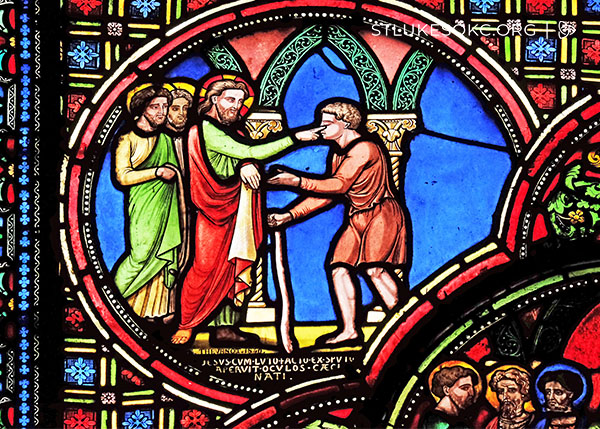“As he said this, he spat on the ground and made clay of the spittle and anointed the man’s eyes with the clay, saying to him, “Go, wash in the pool of Silo′am” (which means Sent). So he went and washed and came back seeing. The neighbors and those who had seen him before as a beggar, said, “Is not this the man who used to sit and beg?” – John 9:6-8
John records the story of Jesus healing a man who was blind from birth. It is a powerful story of Jesus showing that he truly has power to bring healing and life to the world. However, the healing is not the main point of the story. It is the conversation around the healing that John is concerned about recounting.
I can’t imagine what it would be like to receive such a miracle. This had to be the greatest day of his life. It was a day worthy of celebration and a moment fit for rejoicing. However, the people around him could not celebrate, because they were only focused on themselves, their questions, and their concerns about Jesus. Jesus had disrupted their lives by showing great compassion and mercy and power to a person who, some assumed, was blind because of his sin or his parent’s sin. After the healing took place, John records that the Pharisees launch an investigation. They said, “This man (Jesus) is not from God, for he does not keep the Sabbath.” In the midst of a miracle, we find the people bickering and arguing. Meanwhile, a man who was blind… now can see.
John calls the people who begin the questioning, “Neighbors.” (John 9:8) This is not the proper response of a neighbor. A neighbor celebrates when healing occurs. A community rejoices when someone is restored. As much as this story is about the ability of Jesus to heal, it is also an example to us on how to truly be a community.
How often do good things happen to those around us and we fail to celebrate? How do you respond to the joy of your neighbors? Do you express joy? We all have opinions about how things should be, but our faith teaches us that we should rejoice when good happens to those around us. We should cry when difficult times come to our neighbors. We should join in our neighbor’s lives with compassion and empathy. This is what God does for us. This is how we love one another. This is how we build a better world.
– Rev. Keith King, Pastor of Worship



